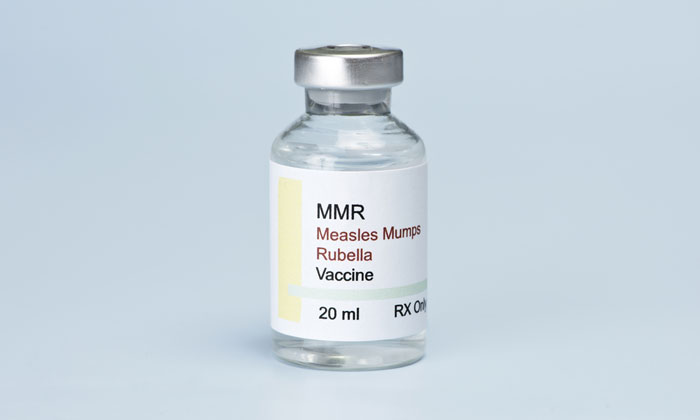In March, mumps made its first Wyoming appearance in eight years. A woman visiting from Colorado was diagnosed at St. John’s Medical Center, as first reported in the Jackson Hole News&Guide on April 24. The two-week incubation period has passed and public health officials say the incident is not cause for concern.
Mumps is a contagious viral infection. The Centers for Disease control describes symptoms that begin with fever, muscle aches, tiredness, headache and a loss of appetite. Swollen salivary glands that lead to puffy cheeks and a tender jaw typically follow.
St. John’s Medical Center Communications Director Karen Connelly says St. John’s has protocol in place issued by the Centers for Disease Control to respond to such a diagnosis.
“Our infection control team and infection prevention team immediately jumps into action to stop the spread of the illness; that’s our goal.”

Step one, Connelly says, was identifying the number of people on staff who were potentially exposed to the mumps. “And in this case, they identified about 52 people, so the next step was to make sure that those individuals didn’t have additional contact with our patients and other staff until we were able to validate whether they had immunity to mumps.”
That process meant some hospital staff had to stay home from work while the hospital verified their immunity to mumps. “And in some cases verifying that immunity required us to draw titers, which look for immunity in the blood.”
Connelly says it was a relief when testing showed only a small number of employees were affected. But, she says, “to them it probably felt hugely impactful to their personal and professional lives while they had to stay off the work schedule until the incubation period had passed.”
Mumps can be prevented with the MMR vaccine which also prevents measles and rubella. And it is measles that is the big concern across the country right now. Measles is a highly contagious illness that causes flu-like symptoms and can cause complications such as pneumonia.
According to the Centers for Disease Control, since January 1, 704 individual cases of measles have been confirmed in 22 states. That’s the highest number of cases reported in the U.S. since 1994. Six years later, in 2000, measles was declared eliminated in the United States.
Wyoming Department of Health’s Kim Deti emphasizes that the mumps diagnosis is not of major concern. Health officials would be more concerned, she says, with a measles diagnosis, which has not been reported in Wyoming since 2010. “This was a pretty isolated case and it’s just not nearly as contagious [as measles].”
Still, Deti says, “it may happen soon, but we have not had [a measles case] in some time and we don’t have an ongoing outbreak. There is no reason for panic.”
Given Jackson is a tourist destination, local public health officials say they realize it is in a different category than other Wyoming communities. Rachael Wheeler is the public health response coordinator for Teton County. “We are always a little more concerned than the state because we have the busiest airport in the state and with the number of travelers we get,” she says.
But it’s not just the folks visiting Jackson, public health officials point out. It is Jackson residents who frequently travel all over the world. According to the Centers for Disease Control, in the United States, most of the measles cases result from international travel. Unvaccinated Americans get infected in other countries and bring the disease back with them. Dr. David Shlim specializes in travel medicine in Jackson.
“The rest of the world, the people who can afford to travel to Jackson, are generally much better vaccinated than the U.S. right now,” Shlim says. “This measles epidemic that we’re having is so preventable and it was so predictable when people stopped giving kids measles vaccine for no reason. Now the cat’s out of the bag and it’s going to be really hard to put it back in the bag.”
News of recent outbreaks seems to be shifting some behavior, even locally. Public Health’s Wheeler says their clinic has seen an increase in people asking for the vaccine. She also encourages anyone vaccinated between 1963 and 1968 to talk to their physician or visit the health department. That’s because the MMR vaccine administered during that time has shown to be less effective than the vaccine used today.
“We could give them another dose of the MMR vaccine or we can draw them a titer,” Wheeler says. (A titer involves drawing a patient’s blood to test their immunity to measles.)
In Jackson, people who are not vaccinated can get the MMR vaccine from their physician or at the Teton County Health Department. Most insurance plans cover the vaccine. If yours does not, call the Health Department. Wheeler says they’ll work with you if that’s the case. And if you are uninsured, the Health Department will cover the cost.





